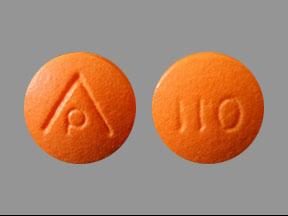
Ra Aspirin Ec Coupons & Savings Card – Discount Prices from $4.16
Brand for: Aspirin
Aspirin is used to reduce fever and relieve mild to moderate pain from conditions such as muscle aches, toothaches, common cold, and headaches. It may also be used to reduce pain and swelling in conditions such as arthritis. Aspirin is known as a salicylate and a nonsteroidal anti-inflammatory drug (NSAID). It works by blocking a certain natural substance in your body to reduce pain and swelling. Consult your doctor before treating a child younger than 12 years. Your doctor may direct you to take a low dose of aspirin to prevent blood clots. This effect reduces the risk of stroke and heart attack. If you have recently had surgery on clogged arteries (such as bypass surgery, carotid endarterectomy, coronary stent), your doctor may direct you to use aspirin in low doses as a "blood thinner" to prevent blood clots.
My prescription
Edit
325MG, Aspirin (30 Tablet Delayed Releases)
Select pharmacy

Walgreens
$4.16
COUPON PRICE
Albertsons
$4.16
COUPON PRICEFree Ra Aspirin Ec Savings Card

Walgreens
$4.16
Show this coupon to your pharmacist
ID
LH3C84F987
PCN
HT
BIN
011867
GRP
LABH001
This coupon is not insurance
Aspirin is used to reduce fever and relieve mild to moderate pain from conditions such as muscle aches, toothaches, common cold, and headaches. It may also be used to reduce pain and swelling in conditions such as arthritis. Aspirin is known as a salicylate and a nonsteroidal anti-inflammatory drug (NSAID). It works by blocking a certain natural substance in your body to reduce pain and swelling. Consult your doctor before treating a child younger than 12 years. Your doctor may direct you to take a low dose of aspirin to prevent blood clots. This effect reduces the risk of stroke and heart attack. If you have recently had surgery on clogged arteries (such as bypass surgery, carotid endarterectomy, coronary stent), your doctor may direct you to use aspirin in low doses as a "blood thinner" to prevent blood clots.
Our Ra Aspirin Ec coupons are free to use. You can print the coupon, email it to yourself, or receive the Ra Aspirin Ec coupon via text message. To get your free discount, show the pharmacist your Ra Aspirin Ec savings card which has the discounted coupon price. Use our filters below to edit the prescription box to match your needs. The Ra Aspirin Ec prices will update based on your prescription needs. Above our Ra Aspirin Ec coupons, you can change the location to see pharmacy prices in other areas. Our prescription discount card will update online with the specific pharmacy costs associated with your edits. Be sure to text, email, or print the Ra Aspirin Ec savings card code that you need after editing the prescription box and location field. Show the discount card to your pharmacist before paying.
Our Ra Aspirin Ec coupons are free to use. You can print the coupon, email it to yourself, or receive the Ra Aspirin Ec coupon via text message. To get your free discount, show the pharmacist your Ra Aspirin Ec savings card which has the discounted coupon price. Use our filters below to edit the prescription box to match your needs. The Ra Aspirin Ec prices will update based on your prescription needs. Above our Ra Aspirin Ec coupons, you can change the location to see pharmacy prices in other areas. Our prescription discount card will update online with the specific pharmacy costs associated with your edits. Be sure to text, email, or print the Ra Aspirin Ec savings card code that you need after editing the prescription box and location field. Show the discount card to your pharmacist before paying.
Ra Aspirin Ec FAQs
Using the SaveHealth discount card, what is the price of Ra Aspirin Ec without insurance?
Using the SaveHealth discount card, the price of Ra Aspirin Ec without insurance is $4.16.
What is the price of Ra Aspirin Ec at Walgreens?
The price of Ra Aspirin Ec at Walgreens is $4.16.
